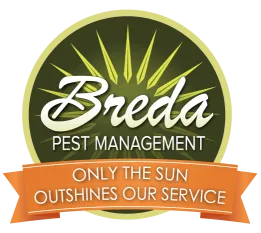They may seem like merely a buzzing seasonal inconvenience, but bees pollinate plants we depend on for food. A devastating syndrome called Colony Collapse Disorder now threatens to wipe out the U.S. bee population. More than one-fourth of commercially utilized honey bees have vanished in the past 25 years. We must do our part to ensure that bees keep working for us.
Bees and Our Food Supply
Without bees to transfer seeds and pollen between flowers, many plants are not fertilized and cannot grow to yield food. Nearly one-third of all food crops (and most wild plants) would die without pollination, including:
- berries
- vegetables
- melons
- almonds
- alfalfa
This can be devastating for crops we depend on for food. The effect on wild plants could extend to other wildlife due to the lack of their food sources. Bees and other pollinators are essential to the ecosystem, making their decline in population alarming.
Bees and Our Economy
Bees are used by farmers to pollinate their crops which are essential to U.S. economy. Bees are responsible for around $15 billion annually in these U.S. crops and an additional $150 million in honey. Diminishing bee populations impact our national economy, and broader reductions affect the global economy. Certainly, the agricultural sector acutely relies on keeping bees safe.
Bee Populations Declining
Bee Keepers are seeing staggering rates of hives being permanently abandoned by entire colonies of apparently healthy bees—a syndrome scientists call Colony Collapse Disorder. This epidemic has now destroyed close to one- third of all U.S. commercial hives. Theories on the cause of this disorder are still scattered. No one factor is emerging as the single cause, but researchers are working hard to discover the causes of this devastating epidemic.
Why Are Bees Dying?
Research reveals the worst contributors to growing incidents of collapsed colonies are apparently global warming and pesticides. Warming results in changes to seasonal timelines by which flora develop. Consequently, when honey bees emerge from hibernation, flowers they need for food to start seasonal pollination have prematurely bloomed. Many toxic farm pesticides used to kill crop-damaging insects also harm the bees needed for pollinating those very crops. Other problems include:
- Abandoning farms, eliminating crops attractive to bees
- Gardening with flower species unwelcoming to bees
- Mites and other parasites impacting bees
- Emerging diseases such as Israeli Acute Paralysis
- Stress due to transportation
It is our job to try and reduce the uses of harmful pesticides and aid in other efforts to reduce the negative impact on these natural pollinators and ultimately our ecosystem.
How to Protect Bees
The EPA and USDA must broaden implementation of the cost-effective Integrated Pest Management (IPM) methods that efficiently manage types and amounts of pesticides that harm bees, other pollinators and insects that eat pests adverse to bees. Urban residents can help by using IPM in homes, schools, businesses and recreational facilities. Everyone can report pesticide misuse or problems harming bees.Please contact us at Breda Pest Management for expert help controlling insects without harming bees. We have proudly served our neighbors in Atlanta and surrounding Clayton, Forsyth and Hall counties for more than 40 years.




